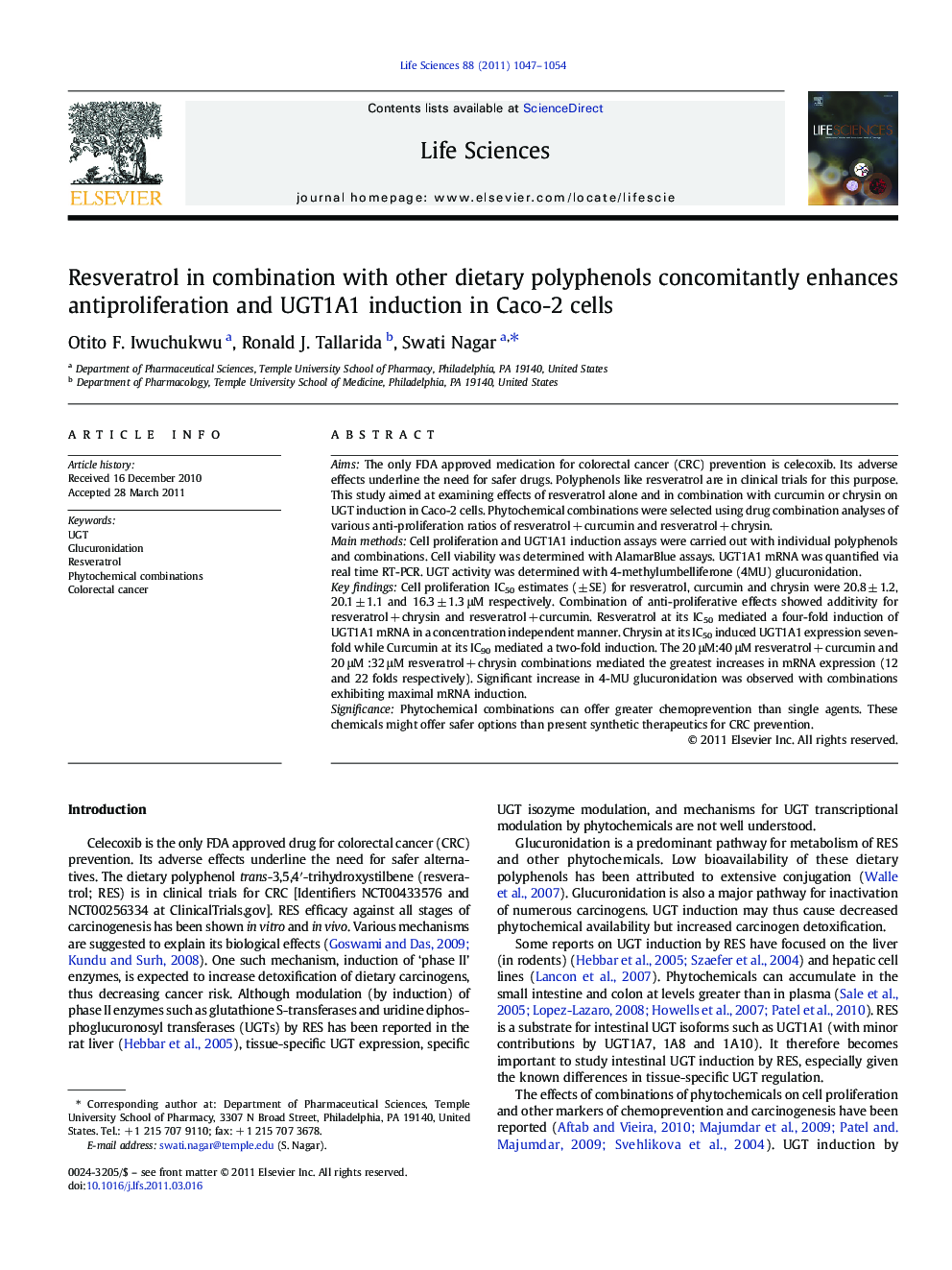| Article ID | Journal | Published Year | Pages | File Type |
|---|---|---|---|---|
| 5842945 | Life Sciences | 2011 | 8 Pages |
AimsThe only FDA approved medication for colorectal cancer (CRC) prevention is celecoxib. Its adverse effects underline the need for safer drugs. Polyphenols like resveratrol are in clinical trials for this purpose. This study aimed at examining effects of resveratrol alone and in combination with curcumin or chrysin on UGT induction in Caco-2 cells. Phytochemical combinations were selected using drug combination analyses of various anti-proliferation ratios of resveratrol + curcumin and resveratrol + chrysin.Main methodsCell proliferation and UGT1A1 induction assays were carried out with individual polyphenols and combinations. Cell viability was determined with AlamarBlue assays. UGT1A1 mRNA was quantified via real time RT-PCR. UGT activity was determined with 4-methylumbelliferone (4MU) glucuronidation.Key findingsCell proliferation IC50 estimates (± SE) for resveratrol, curcumin and chrysin were 20.8 ± 1.2, 20.1 ± 1.1 and 16.3 ± 1.3 μM respectively. Combination of anti-proliferative effects showed additivity for resveratrol + chrysin and resveratrol + curcumin. Resveratrol at its IC50 mediated a four-fold induction of UGT1A1 mRNA in a concentration independent manner. Chrysin at its IC50 induced UGT1A1 expression seven-fold while Curcumin at its IC90 mediated a two-fold induction. The 20 μM:40 μM resveratrol + curcumin and 20 μM :32 μM resveratrol + chrysin combinations mediated the greatest increases in mRNA expression (12 and 22 folds respectively). Significant increase in 4-MU glucuronidation was observed with combinations exhibiting maximal mRNA induction.SignificancePhytochemical combinations can offer greater chemoprevention than single agents. These chemicals might offer safer options than present synthetic therapeutics for CRC prevention.
